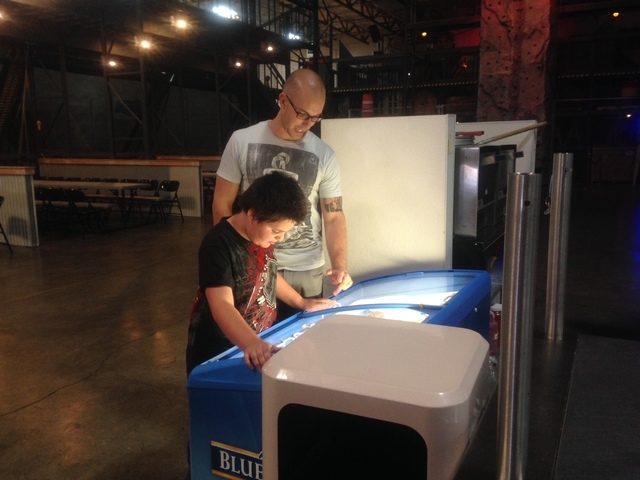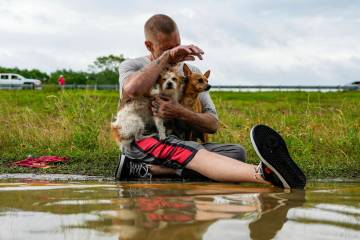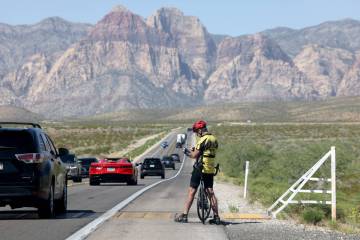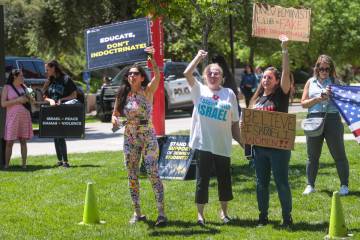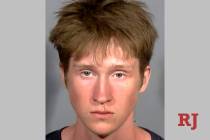Las Vegas mentors guide needy children
They were sweaty and almost out of breath.
Kyle Dunlap, 28, and 9-year-old Charlie had just finished playing laser tag at the FLIPnOUT Fun Center in North Las Vegas last week.
“It makes me a kid again and I can do things that I can’t do with my guy friends,” Dunlap said.
Dunlap and Charlie are one of 350 matches in the Big Brothers Big Sisters of Southern Nevada, a nonprofit organization that helps children reach their potential. Charlie’s last name wasn’t released because of the organization’s national policy to protect the children it serves. The organization was able to make 73 new matches from January to May, but many children are still without mentors.
The organization is struggling to attract adult volunteers to pair with children, most of whom are minorities and lack a father figure in the household.
There are 300 Southern Nevada children, ages 7-17, awaiting mentors. About 93 percent, or 280, are boys, said Athena Gould, chief program officer for Big Brothers Big Sisters of Southern Nevada. The waiting list began to grow more than two years ago, when the organization restarted the service after halting it during the economic downturn, Gould said.
Seventy-five percent of the children who need a mentor are black or Hispanic.
The average wait time for boys to be matched with a mentor is about two years while the average time it takes for a girl to be matched is six to eight months. Teenage girls also have a longer wait time, Gould said.
Children can be referred to the program by their parents, who are usually single mothers, or teachers, counselors, probation officers and case workers, she said.
About 75 percent of currently matched children come from a single-parent or no-parent home, Gould said. The same is true for about 70 percent of those waiting for a mentor.
Mentors “are able to fill in the gap of a role model,” she said.
The organization hopes to recruit 250 mentors by the end of this year. Mentors are asked for a commitment of at least 18 months. They go through an interview, background check and their driving record is reviewed as well.
“We want to make sure there are no recent DUIs,” Gould said. “We want to make sure they are safe.”
Mentors are required to spend four to six hours a month with the child who is their match.
“It really makes a difference in their lives,” said Dunlap, who was paired with Charlie about two years ago, and who began to work with the nonprofit a year ago.
Locally, about 60 percent of the youth that had previous interaction with law enforcement had no additional contact while in the Big Brothers Big Sisters program, or showed a reduction in risky behavior after being matched, Gould said. A match support specialist tracks those who’ve been paired once a month during the 18-month minimum commitment.
Contact Yesenia Amaro at yamaro@reviewjournal.com or 702-383-0440. Find her on Twitter: @YeseniaAmaro.



